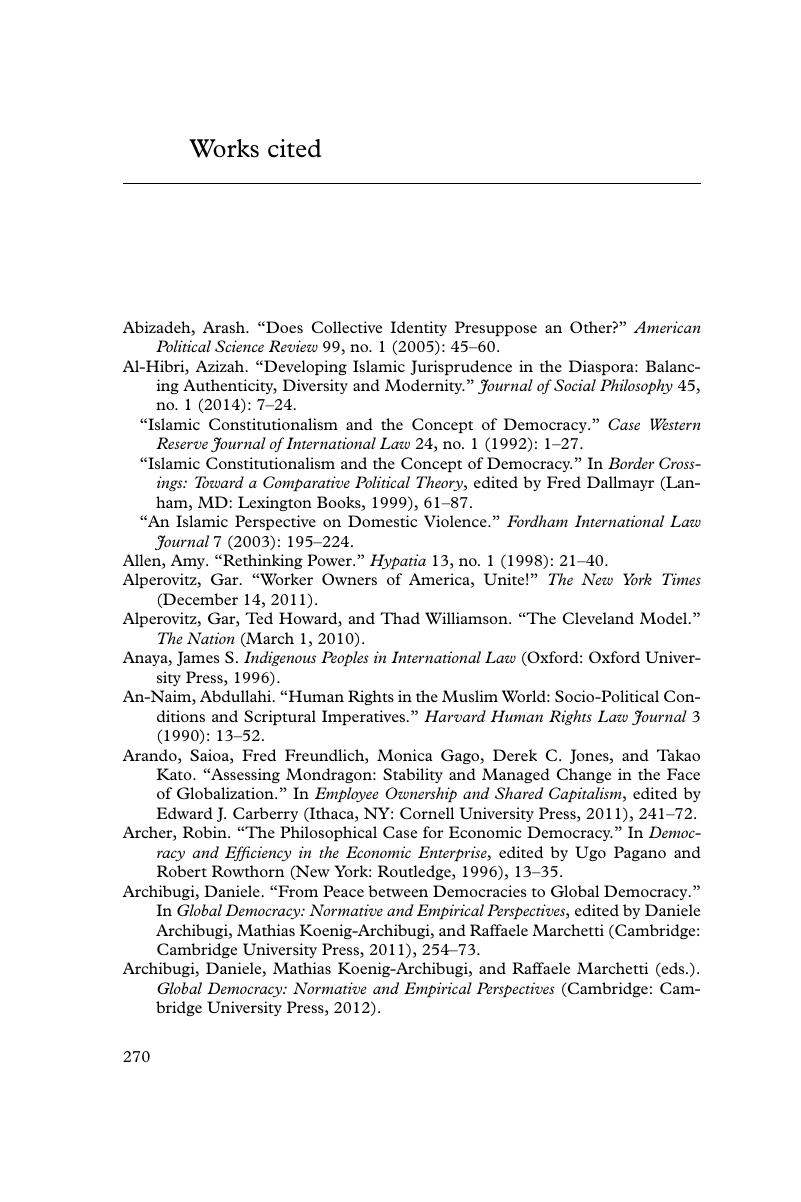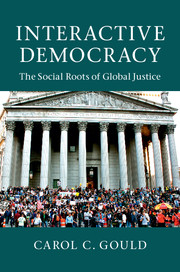Works cited
Published online by Cambridge University Press: 05 September 2014
Summary

- Type
- Chapter
- Information
- Interactive DemocracyThe Social Roots of Global Justice, pp. 270 - 284Publisher: Cambridge University PressPrint publication year: 2014



